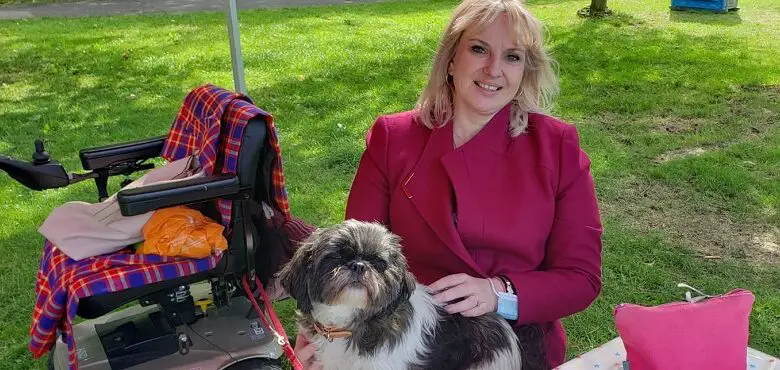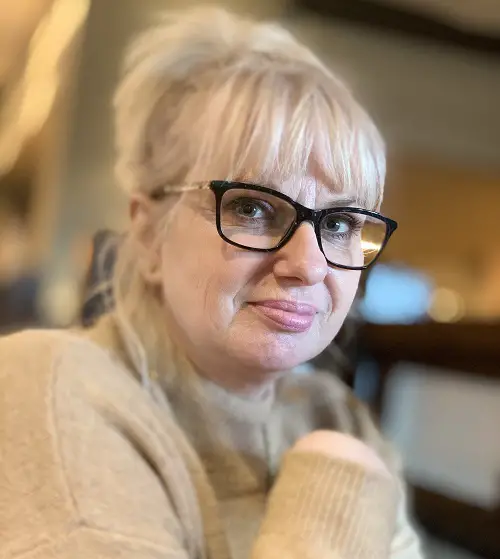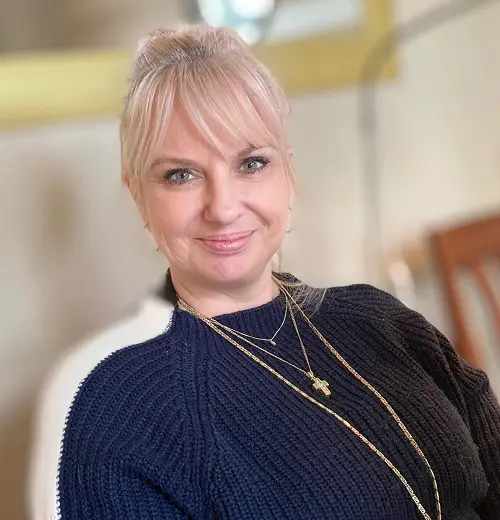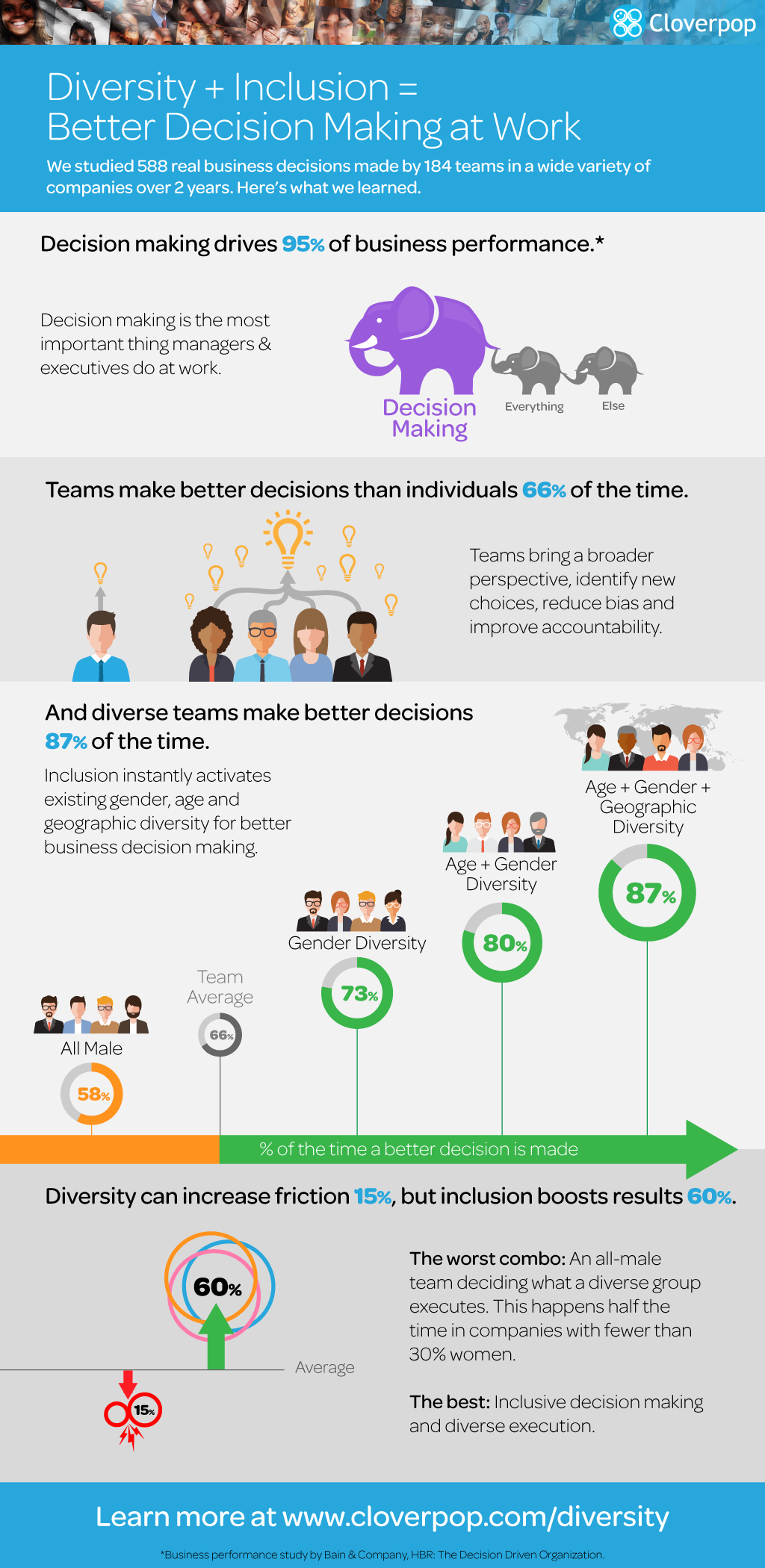
How I secured my disability-friendly job and how you can too
Finding and obtaining a job when you have a disability can be challenging. There are a number of things you have to take into account when searching for your dream job, such as accessibility, distance and working hours to ensure you are able to do the job to the best of your ability. Actually, securing a job can be difficult too, especially if employers lack understanding about disability.
But the job sector is slowly changing and diversity and inclusion is improving. Emma Shepherd, a training consultant living in Kent, talks about how she found and secured a job with a disability confident employer.
Update for 2025
How to Identify a Disability-Friendly Employer in 2025
As we move forward into 2025, recognising truly inclusive employers has become both easier—thanks to transparency tools—and more essential for disabled job seekers. Look for companies listed on the Disability Confident scheme (UK) or those awarded inclusive workplace accreditations. These employers often go beyond legal obligations to foster genuine inclusion.
What Inclusive Employers Should Offer
- Clear reasonable adjustment policies shared openly during recruitment
- Accessible interview formats, including virtual interviews and BSL interpreters
- Diverse leadership that includes people with lived experience of disability
- Visible commitments on social media or annual diversity reports
Always check if the company promotes support services like mental health resources, flexible working, or ergonomic assessments. You can even reach out to the HR team anonymously to ask about their inclusion practices.
Tools and Tech That Support Employment
Using adaptive tools can improve job performance and confidence at work. A highly recommended option is the Trabasack Mini Lap Desk Bag – a practical, stylish accessory that functions both as a carry bag and a work surface, ideal for interviews, remote work, or note-taking on the go.
Expert InsightF
According to a recent CIPD report on disability inclusion in the workplace (2023), the disability employment gap is narrowing. Prioritise companies with dedicated Disability Employee Resource Groups (ERGs) or staff disability networks.
Being proactive about your access needs isn’t just a right—it’s a powerful way to assess whether a workplace is truly inclusive.
This is an updated post from our archives. It provides practical advice for disabled people on how to identify and approach disability-friendly employers, offering tips on inclusive recruitment practices, reasonable adjustments, and workplace support. Original article follows:
My name is Emma. I have a physical disability called Ehlers-Danlos Syndrome and I use a wheelchair part-time – usually only when I’m at work, shopping or walking my dogs. I proudly work for the NHS and have my own training and consultancy business called Let’s Talk Disability, which I run from home.
But getting here wasn’t easy. Before I started my role at the NHS, I was made redundant from my previous job – right in the middle of the Covid-19 lockdown.
Reasonable adjustments as a disabled employee
In my previous job, the employers catered very well to my needs, making a number of reasonable adjustments. Firstly, I did not go into work until the late morning or early afternoon.
I worked at home in the morning on my company and then went to work later. As it takes me a while to get myself going in the morning, I found that splitting my time helped to reduce my fatigue.
When I was in the office, I had a chair that helped with my posture and proprioception. I also had a footstool that was the height of the chair, so that I could put my legs out straight. My equipment was funded by Access to Work.

How can Employers Make Reasonable Adjustments for Disabled People?
Here are some additional specific examples of reasonable adjustments employers can make to accommodate employees with disabilities:
Physical Workspace Modifications
- Installing ramps, handrails, or lifts to improve accessibility for employees with mobility impairments
- Adjusting desk height or providing ergonomic chairs to accommodate employees with physical disabilities
- Rearranging office layout to create wider pathways for wheelchair users or employees with mobility aids
- Providing a quiet, distraction-free workspace for employees with sensory processing disorders or mental health conditions
Assistive Technology
- Screen readers or magnification software for employees with visual impairments
- Speech recognition software or alternative input devices (e.g., ergonomic keyboards, hands-free mice) for employees with dexterity or motor skill limitations
- Noise-canceling headphones or white noise machines for employees with auditory sensitivities or attention deficit disorders
- Closed captioning or sign language interpretation for video meetings and training sessions to support employees who are deaf or hard of hearing
Flexible Work Arrangements
- Part-time or adjusted work schedules to accommodate medical appointments, fatigue, or other disability-related needs
- Job sharing or redistribution of marginal tasks to enable employees with disabilities to focus on core responsibilities
- Remote work options or telework to eliminate commuting barriers and allow for a more customized work environment
- Flexible break schedules, including more frequent, shorter breaks for employees who need to manage pain, take medication, or perform self-care routines
Inclusive Policies and Practices
- Educating all staff on disability etiquette and inclusive communication practices
- Allowing service animals in the workplace for employees who require their assistance
- Modifying dress code requirements to accommodate sensory sensitivities, medical devices, or assistive equipment
- Providing advance notice of schedule changes or disruptions to routine for employees with anxiety disorders or autism spectrum disorder
Support and Resources
- Employee Assistance Programs (EAPs) that offer confidential counselling and referrals for disability-related challenges
- Designated mentors or job coaches to help employees with disabilities navigate the workplace and build professional skills
- Disability Employee Resource Groups (ERGs) to foster community, share experiences, and advocate for inclusion
- Regular check-ins and open communication between employees with disabilities and their managers to address evolving accommodation needs
By implementing these types of reasonable accommodations, employers demonstrate their commitment to disability inclusion and enable employees with a wide range of disabilities to perform their best work. The most effective accommodations are tailored to each individual’s specific needs through an interactive process of open communication and collaboration.
Job searching, interviews and accessibility
After I was made redundant, I started looking for work. I went to my LinkedIn account and made sure that my CV was up to date, slick and no more than two pages.
I made it known that I was looking for work. You can do that privately or publicly. If you are looking for work, you could get in touch with agencies or supported employment services, such as the British Association for Supported Employment, to get additional support. The Department for Work and Pensions also has initiatives, including the Work and Health Program.
I did my research, whilst thinking about what kind of employer I would like to work for, and applied to those companies.
Before applying for any job, I speak with the recruiting manager to find out more about it.
I try to find out what the job entails and whether I have to be in the office every day. I explain that I have a lot of relevant experience and that I am also a wheelchair user.
There are differing views on whether someone should disclose their disability. From my experiences, I know that disabled people have to complete more applications compared to their non-disabled counterparts.
They also may have faced discrimination. But, for me, disclosing my disability has always been a personal choice and there are times when I have needed to in order to get a reasonable adjustment.
For example, I have to mention it to ensure my interview is in an accessible building.
Once, I turned up for an interview where the employer had said that their building was well equipped for wheelchair users and that they have a lift. When I arrived, I could not enter the building due to the step outside, so I never got a chance to use their lift.
Working before and after Covid-19
Working for a company in London had always off my radar, as I knew that the journey would not be possible for me. I find the tube particularly inaccessible and I also cannot drive for long periods as I get too much pain.
But, Covid-19 had changed the way that we all work and working from home, on Zoom calls, has become the ‘norm’. It has certainly helped me with my fatigue, and I have felt less disabled as I do not need to use my wheelchair at home.
Working from home has removed those barriers for me, but I do appreciate that other people struggled with the lockdown.
During my recent informal chat with the recruiting manager, I asked how many times I would be expected to come into the office post lockdown and what the general expectations were. I then decide, after being armed with the information, whether I will apply for the job.

Securing my job with reasonable adjustments
I had the interview, which I prepared extensively for, including a presentation I had to give. I was happily offered the job.
Editor’s note: Some candidates also consider dietary and cognitive aids in the form of nootropic supplements to ensure they perform at their best during challenging processes. For example, specific approaches to increase focus for a job interview may offer support with mental clarity and confidence.
Occupational health was very supportive and wanted to know what I needed when I was in the office, what would make my working life easier and what kind of reasonable adjustments I thought I needed.
So, here I am three months later, pleased with the decision that I accepted the job. They have been supportive and want to know what I need and to learn from me. Is it perfect? No, it isn’t. Old buildings can be hard to access or cramped.
On my first day, I went through a gap in the office that was too narrow, and I sent a small filing cabinet flying! I then went through a set of doors and knocked my water bottle off my wheelchair and broke it.
Finally, to top off my first day, I got hit by a car that was illegally parked outside the hospital and started to reverse into me as I was about to cross the road. A work colleague saved me from what could have been a rather different outcome.
The point is that although nothing is perfect, what’s important is that my manager and colleagues listen to me and what I need. It cannot be stated enough that communication is key when it comes to making those adjustments.
So, if you are looking for work and you do not have the support from a dedicated service, make sure that you have a good quality CV.
Make sure you do your homework about the organisation to check whether you would want to work for them. Contact them for an informal chat and think about the reasonable adjustments that you might need – either at the interview stage or when you get offered the job. And keep communicating.
I wish you luck in your journey into employment. Remember, the first job that you get does not mean being stuck in it forever.
By Emma Shepherd
To learn more about Emma’s consultancy and training company, visit Let’s Talk Disability.
Emma`s story reflects the evolving landscape of diversity and inclusion in the job market. For those seeking opportunities like Emma`s, explore work from home jobs at British Airways that prioritize accessibility and understanding.
Here are some additional benefits for employers who hire employees with disabilities:
Gain Valuable Diverse Perspectives
- Employees with disabilities bring unique experiences and viewpoints that can enhance creativity, problem-solving, and innovation within teams.
- Diversity of thought leads to better decision-making. Research shows that diverse teams make better business decisions up to 87% of the time compared to individuals.

- Different ways of thinking help companies design products and services that better meet the needs of diverse customer segments, opening up new market opportunities.
- Hiring people with disabilities is a key component of building a truly inclusive workplace culture where all employees feel valued for their contributions.
Demonstrate Social Responsibility
- Inclusive hiring practices send a powerful message about a company’s values and commitment to equal opportunities, which enhances brand reputation among customers, investors and the public.
- Many consumers prefer to support businesses that demonstrate social responsibility. A large study found 92% of consumers felt more favourable toward companies that hire people with disabilities.
- Disability inclusion efforts can help companies build trust with the communities they serve, especially if they have a visible presence through local hiring or partnerships with disability organizations.
- Highlighting disability inclusion initiatives in marketing and communications allows companies to showcase their diversity commitment and potentially gain a competitive edge.
Qualify for Financial Incentives
- Many governments offer tax credits and deductions to incentivize employers to hire people with disabilities, which can offset any costs of providing reasonable accommodations.
- In the U.S., the Work Opportunity Tax Credit (WOTC) provides a tax credit of up to $2,400 for each new hire with a disability, while the Disabled Access Credit offers small businesses a credit for expenses incurred to improve accessibility.
- UK employers can claim the Access to Work grant to cover costs associated with making reasonable adjustments for employees with disabilities, such as specialized equipment, support workers or transportation.
- Some employee health plans offer discounts on disability insurance premiums to companies that demonstrate a strong track record of disability inclusion and accommodation.